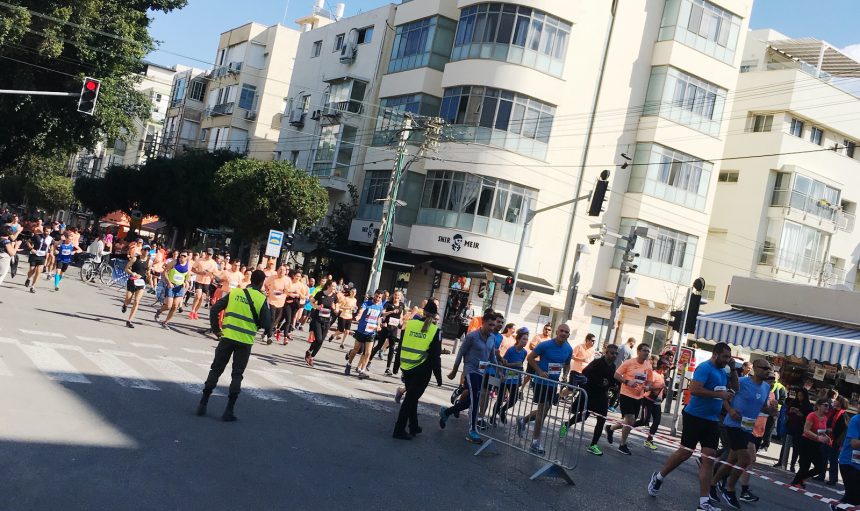The upcoming Tel Aviv Marathon on February 24, 2023 is a hugely popular event with thousands of participants – a large share of whom aren’t running the full distance. If you are considering running the marathon, or any other distance, we invite you to take notice of the medical advice below to make it the challenging yet fun event you want it to be!
1. Get Functional Clothing For Health & Comfort
Weather in Tel Aviv at this time of the year is unpredictable, the marathon was cancelled 2x in the past 10 years for medical considerations due to hot temperatures.
To prevent your body from overheating (which could potentially lead to Hyperthermia or Heat Exhaustion) or from losing too much heat (resulting in Hypothermia), it’s a good idea to invest in some temperature controlled running attire. Clothes should also be non absorbent and of course, comfortable.
Keep in mind that even if you feel cold when you arrive at the race, you your body temperature will rise significantly once you begin running. Wearing layers is a good option, as you will be able to add & remove them depending on the weather/how you feel.
2. Footwear To Prevent Orthopaedic Injuries
Running in incompatible/ill fitting footwear can create foot, knee, hip & back pain. Wearing running shoes that fit you and provide your feet with enough cushioning & support, helps to prevent injuries such as Stress Fractures and Achilles Tendonitis (an inflammation of the Achilles Tendon).
It has also been shown that wearing too small/tight shoes, can lead to conditions such as Bunions and Corns.
Specialised running socks, with features such as anti shock/anti friction and moisture control, will also help to prevent blisters, raw skin & bacterial growth.
3. Fuel
It is advisable to build up your glycogen stores by consuming extra carbohydrates in the period leading up to the race, especially the day before (Requirements will vary based on the length of your run, as well as personal nutritional needs). Stick to nutritious forms of carbohydrates such as whole wheat pasta/rice, oats, grains instead of simple carbohydrates and junk foods.
Meals should also include lean protein sources & fruit/vegetables. On the morning of the race, it’s advisable to eat/drink something small but energy dense such as a nutrition bar, banana, or sports drink. Eating a larger/heavier meal could lead to stomach problems that will cause discomfort whilst running.
During the race itself, fuel up with a sufficient amount of sports drinks/gels, and upon completion (Well Done!), regain your energy by refuelling with a nutrient dense, balanced meal.
4. Hydration
As with fuelling, it’s important (perhaps even more so) to be well hydrated before, during and after your race. Alongside oxygen, water is the most essential necessity for life. Water makes up more than half of a person’s body weight, and plays a critical role in nourishing cells, maintaining blood pressure/volume, eliminating waste and more. Runners are particularly susceptible to dehydration (not getting enough water) which can be very dangerous indeed.
Make extra efforts to drink enough water during the period leading up to your race, but be careful not to overdo it – drinking too much fluid will dilute your sodium levels, which could in extremis lead to water intoxication.
Whilst running, you will lose fluids & electrolytes through sweating, so make sure to sip water and sports drinks during the race in order to replace these.
5. Know Your Body’s Limits!
Running a marathon requires pushing beyond mental & physical barriers to achieve a certain goal. Despite your determination to succeed, remember to listen to your body & know your limits.
Even with sufficient training & fuelling, it’s possible to feel unwell or severely exhausted at any time during the race. If you are feeling dizzy, are close to hyperventilating or feel close to passing out, these may be signs that your heart rate is too high and or/your blood pressure is too low.
If you experience these symptoms, you should stop running & take a break. Use this time to refuel & rehydrate. Take deep breaths and allow your body to rest for some time …
Enjoy! And remember: Your health is more important than achieving a new record.



